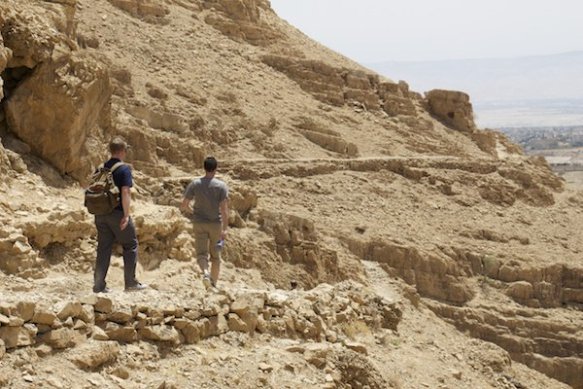
Faith Speaks.
“By faith Joseph,” continues the Hebrews 11 account, “when his end was near, spoke about the exodus of the Israelites from Egypt and gave instructions about his bones.” An emigration and an exhumation is an unlikely pairing for a dying valediction. What was Joseph, great grandson of Abraham, thinking?
The end of life—like the end of a good novel—has a way of clarifying the most important things to us. To Joseph, it served to supply a final opportunity to speak hope to his loved ones—the descendants of his father Israel who were living in Egypt with him, far from their Promised Land. If Joseph had learned one thing in his long and challenging life, it was that God’s plans are for our good, even when everything around us seems to be stacking up against us. That’s a lesson some people would never learn unless someone like Joseph were to speak out.
Some ninety years earlier, Joseph had been bullied and sold into slavery by the brothers to whom he now spoke. Enslaved in Egypt, the angry treachery of his master’s wife had then sent Joseph to the pharaoh’s dungeon. Kindnesses to other prisoners were repaid to Joseph with thoughtless indifference. Joseph was forgotten by all.
But somewhere in the midst of the darkness of his life experience, Joseph remembered what God had said. He remembered the promise God had spoken to his father, grandfather, and great-grandfather. It was a promise that God was working for his—Joseph’s—good and the good of all who honoured God from their heart. Like a piercing ray of light, this word, this call of God on his life, brought Joseph hope.
And later Joseph began to see God using him to bring hope into others’ lives, including those brothers who had begun the terrible chain of events Joseph had suffered. “You intended to harm me,” he would later summarize for his guilt-ridden brothers, “but God intended it for good.”
Now Joseph had one more opportunity to speak. He could have used it to bitterly berate his family members for their cruelty to him resulting in so many years of his youth being lost to slavery. He could have used it to take credit for the personal skills that led to his release from prison. He could have used it to flaunt the power and prestige to which he had eventually risen in Egypt. Rather, Joseph’s words reveal that his heart was set on something bigger, something much more important, something of eternal value. Joseph was now thinking of the distant future. He was visualizing God’s promises fulfilled.
God had promised the Israelites a land of their own. He had promised to bless them. More than that, He had promised to bless all nations on earth through them. And most notably, He had promised to send a unique Someone through the Hebrew family line who would reverse the ancient curse produced in Eden by humanity’s inaugural sin.
Although Joseph knew he would not live to see the day these promises would be fulfilled, he had two reasons in mind when he spoke the message captured in Hebrews 11. Firstly, Joseph believed God’s call on individuals’ lives to be authoritative—both practically and spiritually; Joseph understood every event of his life to be a concatenation—at series of connected events—through which God’s call and promise would be fulfilled. Without Joseph’s enslavement there would have been no inroad into an Egyptian prison. Without the prison, there would have been no opportunity to serve the Pharaoh. And without serving the Pharaoh, Joseph’s family back in Palestine would have perished when the years of drought wreaked their havoc. Looking back over his life, Joseph was able to see that God’s seemingly distant promises had influenced Joseph’s day-to-day opportunities to be faithful. So when Joseph’s final words reminded his people that God would be true to his promise to lead them to their Promised Land, he was passing the baton on, so to speak. He was encouraging them to remain hopeful, faithful and true to God.
Secondly, Joseph believed that God’s call involved inexplicable hints that life was designed to be eternal. He knew the oral tradition told by his ancestors. It spoke of death as a post-scripted addendum to God’s original plan for human life. Had there been no sin there would have been no death. So while Joseph knew with certainty that he, like his ancestors Abraham, Isaac and Jacob would die he wanted to make a final statement on behalf of God’s original plan for an undying humanity. He wanted his bones to be brought to the Promised Land because if God’s plan some day included reinstituting eternal non-dying life—if there was Someone who would initiate a resurrection—Joseph wanted to be in on it.
That is what faith in God’s call speaks. It speaks of God taking the difficult events of your and my faith-filled lives and turning them into good. It speaks of a resurrection to eternal life. It speaks of Jesus. This is how faith has and will speak. Are you letting it speak through you?

